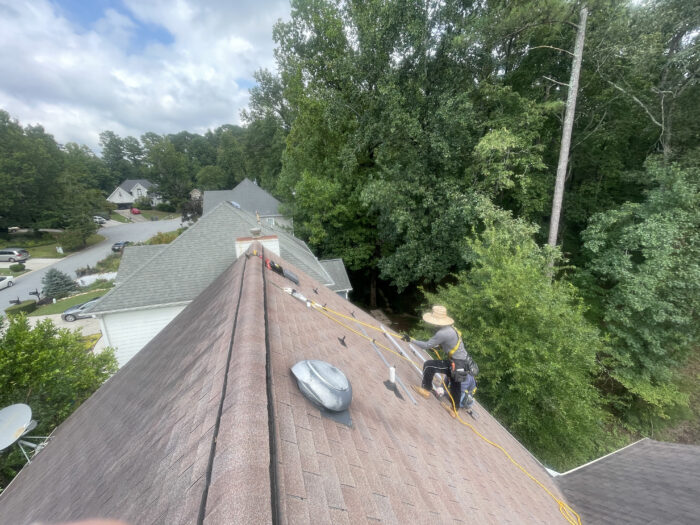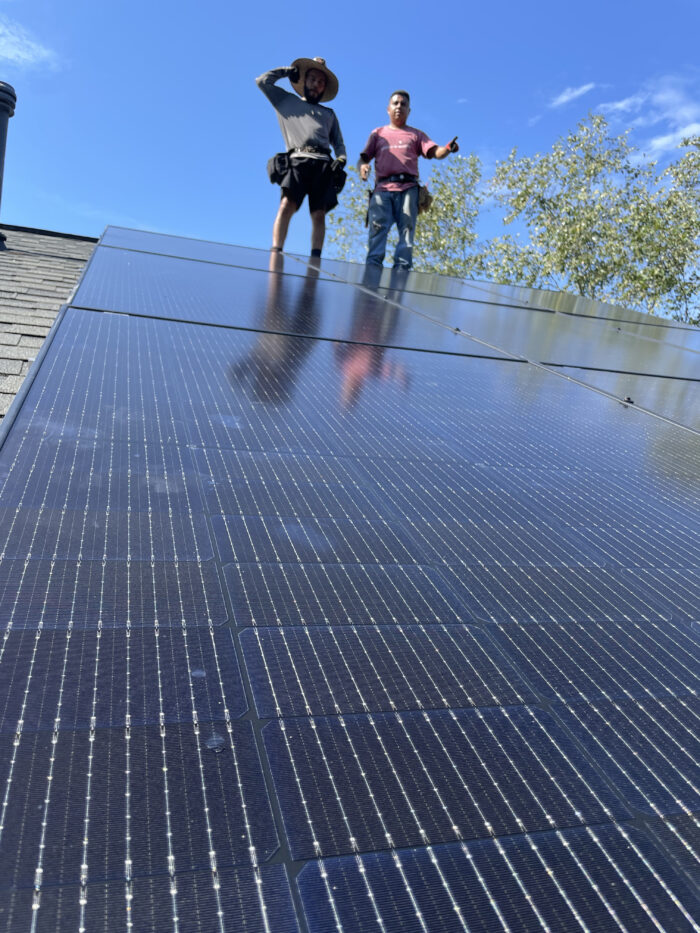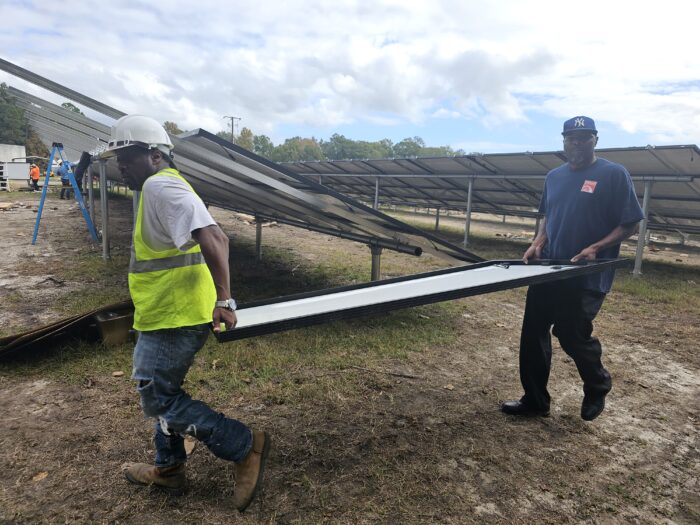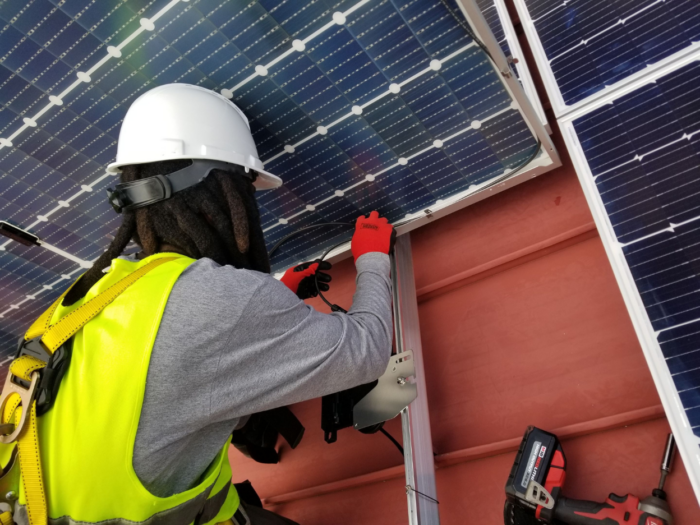Solar saves money for Georgians
Capital Good Fund, a nonprofit community development financial institution, was awarded $156 million in Solar for All funding to develop cost-saving solar programs across Georgia. This funding will help significantly expand Capital Good Fund’s cost saving solar lease program, Georgia BRIGHT.
EPA awarded a total of $7 billion in Solar for All competitive grants to 60 states, tribal governments, municipalities, and nonprofits across the country to expand access to cost saving solar. These programs will benefit communities with lower incomes and provide workforce development enabling millions of households across the country access to affordable, resilient, and clean solar energy and related jobs. The funds have the potential to nearly double the number of rooftop solar customers in Georgia.
This program is a gamechanger for Georgia families struggling to pay rising energy bills.
Jennifer Whitfield, Senior Attorney
Georgia BRIGHT (Building Renewables & Investing for Green, Healthy, Thriving Communities) aims to expand solar power to Southerners who may not have access to traditional solar programs because of high up-front cost, poor credit, or high interest rates. This first of its kind solar lease program is run by Capital Good Fund.
Homeowners pay nothing up front and receive energy savings on day one because of Inflation Reduction Act nonprofit tax credits, grants, and other financial support, including a $1 million grant from the Arthur M. Blank Family Foundation. Solar for All funding will expand Georgia BRIGHT from a pilot program serving about 200 households and nonprofits up to 8,000 households over the next five years. Federal grant funding is key to expanding the program with the promise of day one savings in a state like Georgia that does not have market stimulating policies like net-metering.


“It’s been clear from the first time we spoke to governments, nonprofits, and community groups throughout Georgia that the state has a hunger for a program like this,” said Andy Posner, Capital Good Fund founder and CEO. “The truth is that the BRIGHT program gives me hope for the future. It is an example of how we can address the climate crisis, inequality, air pollution, and the need for economic development at the same time.”
Resiliency for coastal homeowners
“My power bill is about $239 a month. That’s an awesome high figure,” said David Morgan, a Savannah area Georgia BRIGHT participant. “It is very beneficial for your average Joe. You don’t have to come up with a lot of money and with this program I didn’t have any upfront costs. So that really changes things.”
Savannah, Ga. area homeowners participating in the pilot were attracted to the program’s no upfront costs, bill savings, and resiliency. Morgan and other BRIGHT participants opted for additional battery storage because of the area’s vulnerability to strengthening tropical storms, flooding, and other climate change impacts.

“Sustainability was a big thing,” said Georgia BRIGHT participant Mark Thomas. “We lose power periodically and I use a CPAP. I have severe sleep apnea. If the electric goes out and my CPAP doesn’t work, my health is at risk.”
Solar, battery, and energy efficiency programs are cost effective ways to help control rising energy bills. In Georgia nearly 1.4 million households use more than 6 percent of their income on energy costs, and about one third spend more than 10 percent – a level considered “energy poverty.” The median U.S. household uses about 3 percent of their income on energy.
In September 2023, the Georgia BRIGHT pilot project began signing up households that make less than $100,000 a year across the state. Capital Good Fund owns and maintains the solar panels over a 25-year lease term, with an option for homeowners to buy panels after seven years at approximately 65% of the original system price. The average household stands to save 20% on energy costs a month.
“This program is a gamechanger for Georgia families struggling to pay rising energy bills,” said Southern Environmental Law Center Senior Attorney Jennifer Whitfield, who worked with Capital Good Fund and local partners to help develop the Georgia BRIGHT program. “If we can make cost-saving solar work for people in a state like Georgia, there is hope for households who need this type of relief across the South.”
Lowering energy bills and building careers

For Nicole Lee, expanding her business to include solar installations was about more than saving families money — she’s creating good paying career opportunities for neighbors who may need a second chance. “I think that is a big part of my role,” Lee said. “I want to create a career, something that you can move in life with, you can take somewhere else, and you can continue building on.”
Lee, Founder and CEO of Be Smart Home Solutions in Savannah, Ga. previously did energy audits and weatherization for communities with lower income residents in Georgia and South Carolina. She was able to create some savings for her customers, but residents needed more help lowering rising energy bills. Be Smart Home Solutions, along with Sunpath Solar and Better Tomorrow Solar handle Georgia BRIGHT’s engineering, permitting, and installation of solar panels. All three Georgia BRIGHT installers are also committed to training and career development in an emerging industry that just got a supercharge of federal funding.
“I think Georgia BRIGHT levels the playing field for low-income families,” Lee said. “Families aren’t looking to spend their lives struggling to pay household bills. Solar provides an opportunity, so families are not trying to figure out which bill to pay each month.”
